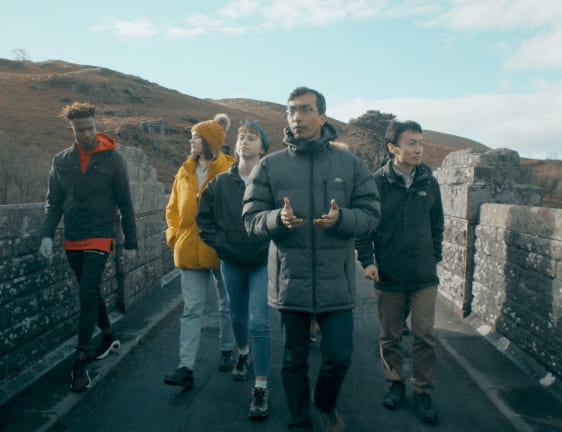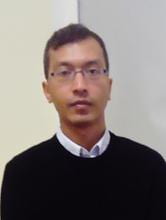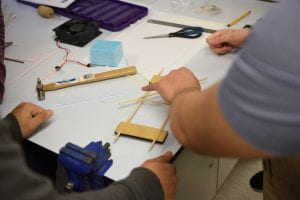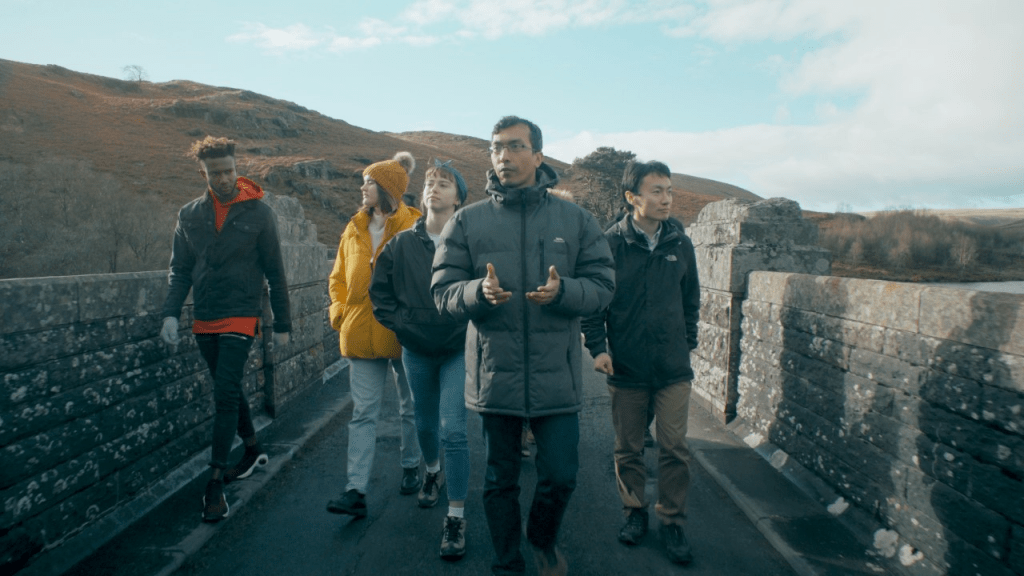Support for my career – Shams Rahman
“Have patience. People may be ‘brilliant’ but everyone has to learn, and that will take time.”
A S M Mostaquimur Rahman – aka Shams to his friends and colleagues – is a lecturer in Civil Engineering, specialising in Water and Environmental Engineering. He tells us here about his career so far, and what motivates him.
Tell us about you – where are you from, who you are outside of work?
I was born in Bangladesh. In 2008, I moved to Germany for higher education studies. I came to UK in 2015. I am quite sporty – I love being outside. I play table tennis, I go swimming, I do kickboxing – actually I spend at least 6 hours per week training on kickboxing per week in addition to some time over the weekends. I especially like doing this after work to take my thoughts off work!
I like to socalise with friends and neighbours – I like a BBQ. I like reading, and I’m fascinated with anthropology – Ancient Egyptian history, myths and legends, and astronomy. Reading is like a motivation and it safeguards me against any frustrations… for example, reading about the universe and how big it is makes my small issues with my research and life seem irrelevant.
I have a family – a wife and an eight-year-old. He likes routine so this time (where we are all now working from home) is suiting him OK.
Tell us how you got here – what did you do to get here, what decisions did you make, what motivated you?
I come from Banglasdesh where there is quite a lot of pressure on you in terms of studying, and your parents define what you study. To be honest my family motivated me to choose Engineering – it was wider than just my personal motivation. I was lucky as I got admitted to the Bangladesh university of Engineering and Technology which is the best one in the country for Engineering- admits about 600 people per year but you’re competing against 15,000 in the admission exam for the place.
I liked the structural aspect of Civil Engineering but in terms of bridges and the structural aspect, I was not as fascinated about it as I was about the Environmental side of Engineering. After my Bachelors, I decided to do Environmental Engineering as a Masters. I moved to Germany to do this masters at the Technical University of Munich. I met great people there, especially great teachers, one of whom motivated me to choose Hydrology and I really liked it. I went on to do my Phd in Bonn. It was the creativity in Environmental Engineering that I really liked… throughout my working life the thing I most feared was not being able to be creative. I don’t think I would survive in a work context where work just repeats itself. Hydrology is just one part of Environmental Engineering, there’s also soil, air, etc – in any one of these sectors there is the opportunity to be very creative, especially given the current climate change situation. You cannot live without pure water or clean air, and due to the climate change scenarios we face, we are moving into a place where this could be a threat. You have the maximum opportunity to be creative to not let that happen.
I came to UoB as a Research Associate in April 2015 and looked at water resources and large-scale problems around it. I looked at Hydrology in the UK (specifically southern UK) – it was my first RA role.
I got my first lectureship in 2018 and I am now a proleptic lecturer which means that although I was initially employed for four years I will now be permanent at the end of the four years – I had to re-interview for this proleptic position. Now I have a son and a family it’s a good time to be able to settle, and Bristol is a good place to do this – we all like Bristol as a city, and the university is good, plus the Water group is well-renowned.
Why do you like your job?
I look at the numerical modelling aspect of Hydrology, specifically in the context of ground water resources access. Modelling is everything in terms of creativity – a model is simplified reality and how do you simplify reality? You have to make assumptions and then build a model from the assumptions. You need to be creative while making the assumptions. Reality becomes about creativity – what assumptions you make and why you are making them. I start with a blank page and think about the whole hyrdrological system and come up with the assumptions, the equations, the mathematical techniques to build that model.
In 2018, I had a chance to go to Malaysia, where they have lots of ground water resources but don’t use it as yet. I had the chance to work with policy makers and stakeholders in Malaysia. I was able to be really really creative there – the problems are social and political there, so you need more creative solutions to improve the uses of ground water. If you think of developing countries in Africa for example, there’s no assessment of ground water resources there – modelling could be a really viable approach here, there’s not much data there so you can be really creative here to enable more people to get the water resources they need.
How do you make it work in terms of work/life balance?
Sometimes it’s challenging but my hobbies mean that I force myself to keep the balance. As I like creative work I cannot do this if I work twelve hours a day – my brain will become too tired. The hobbies keep me busy outside office hours and force me not to go into the office work and tire my brain. And family life also does this too.
How has career development / promotion happened for you so far?
I became a lecturer in early 2018 and two major things I have to now do are: 1. supervision of students and 2. classroom teaching. I really love the classroom teaching. I try to learn with the students – I know something about the subject but I try to find ways to make it easier for students to understand… it makes me understand the subject even better. There’s a lot more to do around teaching however.
Supervision – I’m really fascinated with the teaching-related supervision such as the third-year project where they students do a small research project that could be related to my research. This also gives me the chance to guide them around research – it’s another form of teaching – and is also enjoyable. Phd supervision is a form of research in a way.
How have you been supported, and how do you support others?
After my Phd I started at Bristol in a flash, and became a lecturer a few years later. So one area I struggled in was feeling confident that I could do it… when I think about this in general, ‘am I ready to be a lecturer at the University of Bristol’ it seems too daunting.
My research supervisor when I was an RA, Rafael Rosolem, gave me a lot of support – I am very grateful to him for this. He told me to try for a lectureship when the role came up. Thorsten Wagener is someone who is very busy but he always finds time for people, whether it’s a Phd student or an RA, or anyone – if you need to talk about something to him, he will find the time. I had opportunities to talk to him as an RA and he would put my research into perspective, at a global level, as he knows the field well. He’d show me what we want to do within the Water group and it gave me the confidence that my research could fit in to it.
As an RA I supervised project students and Thorsten encouraged me to get this experience, and I also helped Rafael on one of his courses as a Teaching Assistant which was really good experience. We actually did the teaching together – I focused on the modelling part of it – and we went through the Independent Learning Outcomes and assessment criteria and content beforehand together for me to understand it.
The Water group has a very supportive feel to it, I can talk to anybody, everybody is very open. Ross Woods has supported me and Francesca Pianosi has too – we share an office and teach a final year course together. I was new to that course and received a lot of help from her to do it. Miguel and Nicholas has also been very supportive. Miguel and Nicholas has also been very supportive.
What next?
I am relatively new to being a lecturer so developing my leadership career is the next focus – I will focus on a first grant proposal, and a new investigator award. I want to supervise a PDRA too. I’ve recently agreed to be an associate editor on a journal. I want to do a few sessions at big international conferences. Eg Geosciences at Vienna and San Francisco.
As for my research, I want to make the most out of my research in terms of impact. I want to apply my research to assess the impact of population growth and climate change on water resources globally. I want to collaborate with other UK wide organisations to develop global scale models for assessing water resources.
What advice would you give people considering a similar career?
Patience. Have a fascination with the subject. Whichever field you chose, sometimes things will become difficult … especially when it comes to your higher education. Just be patient and know that people have to learn things anew. People may be ‘brilliant’ but everyone has to learn, and that will take time.





